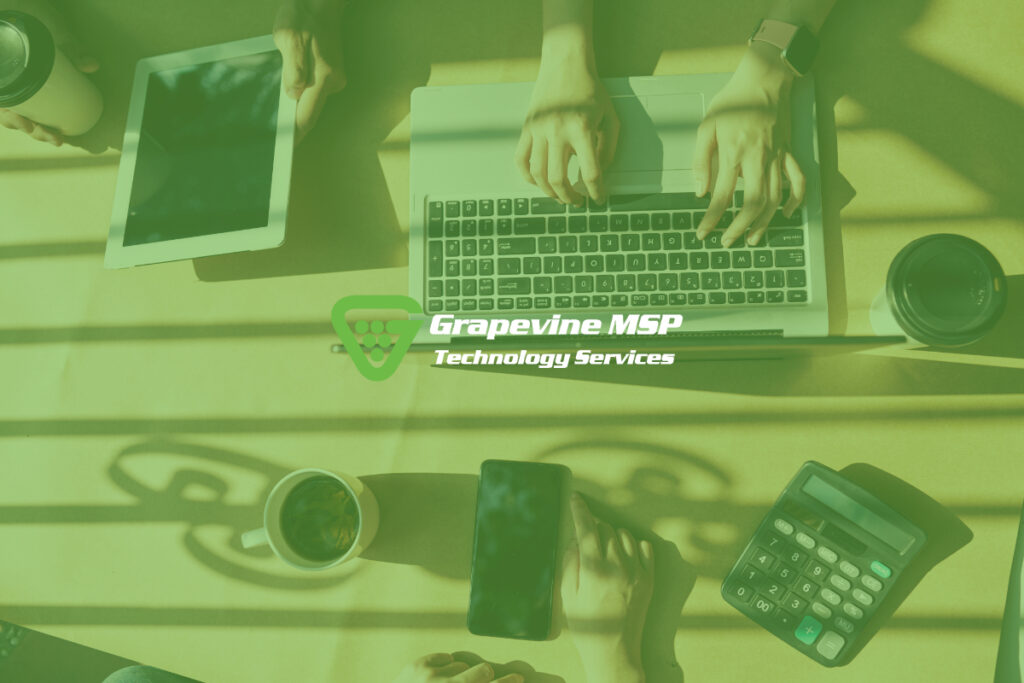With the astronomical adoption of remote work from 2020 onwards and the emergence of cloud-based solutions such as Software as a Service (SaaS), the access of organizational networks via mobile devices presents new security challenges for businesses.
Whether on work-provided devices or personal devices that are then used to access work (Bring Your-Own-Device), these apps empower employees to collaborate, manage tasks, and access critical information on the go. However, amidst the convenience and efficiency they offer, there’s an often-overlooked security aspect that some organizations may not be addressing.
Mobile device vulnerabilities and potential data-collection by unsecure vendors or application providers pose a significant risk to businesses. In this article, we’ll delve into the importance of securing your work device applications, the potential threats they may face, and actionable steps you can take to ensure the safety of your business data and operations.
An Outline of Mobile Device Vulnerabilities
Mobiles are far from impervious to cyber threats, with such devices often containing or being used to access vast amounts of sensitive data. As a result, they are a key target for cyber criminals. For businesses, cyber vulnerabilities arise on mobile devices in three key ways:
- The use of unauthorized or insecure apps on work devices
- The use of personal devices to access organizational data and networks
- When employees access the internet via unsecure gateways such as public Wi-Fi networks
For businesses lacking oversight and access restrictions on mobile devices, this can create an array of cyber risks, including the installation of malicious software or cyber criminals taking advantage of applications with weak security features and using them to access other features on the phone (such as the microphone or camera) or data.
The BYOD Challenge
Bring Your Own Device (BYOD) policies, which allow employees to use their personal devices for work-related tasks, have gained popularity in recent times. While BYOD offers flexibility, it also raises security concerns. When personal devices are used for work purposes, the line between personal and professional data blurs, potentially exposing business information to security risks.
Unsecure Vendor and App Providers
Some app vendors or providers may not prioritize robust security measures. Certain apps might collect and transmit sensitive data without users’ knowledge or consent, putting business information at risk should these vendors be compromised. This data can be exploited by malicious actors or even fall into the wrong hands due to lax security practices.
Mitigating Mobile App Risks
Mitigating mobile app risks entails taking a range of technical and organizational measures that are contextually appropriate to your business. These include:
App Inventory and App Vetting: Take an inventory of your officially approved apps for work purposes and maintain this list. Before introducing any app to your business ecosystem, conduct a thorough vetting process. Research the app’s developer, read user reviews, and assess the permissions it requests. Look for clear privacy policies and data encryption measures.
Regular Updates: Keep all applications, whether for personal or work use, up to date. App developers frequently release updates that patch vulnerabilities and enhance security. Enable automatic updates whenever possible to ensure you’re always running the latest, most secure versions.
Robust Password Policies: Require strong, unique passwords for all work-related apps. Encourage employees to avoid reusing passwords and utilize password managers to maintain security without sacrificing convenience.
Secure Network Usage: When using work apps, ensure your device is connected to a secure network. Avoid public Wi-Fi networks, which are vulnerable to data interception. Implement Virtual Private Networks (VPNs) to encrypt your data whenever remote access is needed.
Employee Training: Educate your workforce about the importance of app security. Raise awareness about your IT policy and approved apps and teach employees how to identify suspicious app behavior and the risks associated with granting excessive permissions to apps.
Implement Mobile Device Management (MDM): Consider using MDM solutions that allow you to manage and secure devices that are used for work. These solutions can enable you to enforce controls on mobile devices such as ensuring only approved apps are installed. MDM also enables remote wiping of devices in case of loss or theft and enforces security policies.
Two-Factor Authentication (2FA): Enable 2FA for all applications that support it. This additional layer of security requires users to provide a second form of verification before accessing sensitive data.
Data Encryption: Utilize apps that offer end-to-end encryption for data transmission and storage. Encryption ensures that even if data is intercepted, it remains unreadable to unauthorized individuals. It is also important to use apps that are still supported by vendors with the latest security updates.
Regular Auditing: Conduct regular audits of the apps that are used within your business ecosystem. Remove any apps that are no longer necessary or do not meet your security standards.
The Path Forward: Balancing Convenience and Security
Mobile apps have undoubtedly been a game-changing development in the way we work, offering unprecedented convenience and flexibility. However, this convenience should not come at the expense of security. It’s crucial for businesses to strike a balance between harnessing the potential of mobile apps and safeguarding sensitive information.
By implementing a comprehensive approach that encompasses app vetting, user education, secure network usage, and robust security practices, businesses can secure themselves and their devices from the cyber threats at play today.
Grapevine MSP – Your IT Support Solutions Provider in Bakersfield, California
Ready to take your business to the next level with reliable and efficient IT support? Look no further than Grapevine MSP. With our comprehensive IT services, including network management, security solutions, and proactive support, Grapevine MSP is the partner you need for seamless business growth. Our team of experienced professionals will ensure that your IT infrastructure is optimized, allowing you to focus on expanding your company with confidence. Don’t let technology hold you back – contact us today and discover how Grapevine MSP can propel your business forward.


